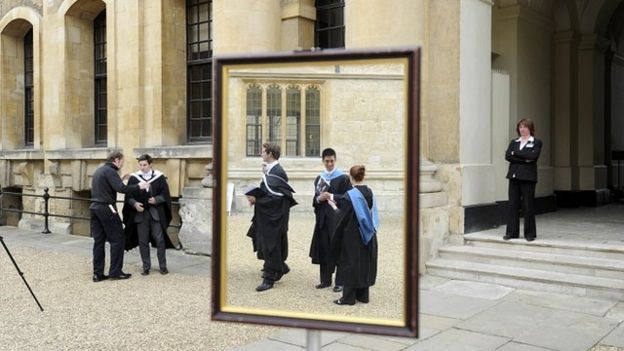Firstly, what is a personal statement?
Remember that what you write could be used to decide between you and another candidate for the final spot on that dream course.A personal statement is an extended essay about yourself and a key part of your Ucas application.
While many candidates may apply with the same grades as you, they aren’t you as a person, with your passions, experiences and thoughts. You need to stand out as a real person to an admissions tutor, as opposed to one of the many applicant numbers that will pass before their eyes!Your personal statement is where you can distinguish yourself from other candidates; fill in the picture a tutor has of you in their head; and leave a real impression that makes them want to meet you or offer you a place!So what should go in a personal statement?
1. Explain your reasons for wanting to study the course
What motivates you to take this course further at a university level? Mention how your interest developed, what you have done to pursue it or how you’ve drawn inspiration from your current studies. Or, just demonstrate your enthusiasm for it. If you want to get something specific out of it, provided it's reasonable, say so.Be specific from line one. English Admissions Tutor
- Must-read: Subject-specific personal statement advice
2. Explain how you're right for the course
Provide evidence that you fit the bill to show that not only do you meet the selection criteria; but also that you’ve researched the course (or profession) and understand what studying the subject at university level will involve. Also show that you're prepared for this.Keep on topic and show that you’ve really done your research and know why you want to do the course. Sport Admissions Tutor3. Say what you’ve done outside the classroom
If possible, outline how you’ve pursued your interest in your chosen subject beyond your current syllabus.For example, talk about any further reading you’ve done around the subject and give your critical views or reflective opinions about it (don't just write a list). This could be from books, quality newspapers, websites, periodicals or scientific journals or from films, documentaries, blogs, radio programmes, podcasts, attending public lectures and so on.Try to avoid mentioning the wider reading that everyone else is doing.If I have to read about Freakonomics once more, I’ll scream! Economics Admissions Tutor
- Must-read: Make your personal statement stand out
4. Why it’s relevant to your course...
Reflect on your experiences, explaining what you’ve learned from them or how they’ve helped develop your interest in the subject – it could be work experience, volunteering, a university taster session or outreach programme, summer schools, museum, gallery or theatre visits, archaeological digs, visits to the local courts, travel, competitions or a maths challenge.It doesn’t have to be anything fancy! Archaeology Admissions Tutor5. … And relevant to your chosen career
Reflecting on relevant experience or observations will be essential for some professional courses where, in effect, you’re applying for the career as well as the course:Reflect on your experience, don’t just describe it. Talk about the skills the profession needs, how you’ve noticed this and how you’ve developed those skills yourself. Occupational Therapy Admissions TutorWhatever environment you’ve been in, what did you spot or learn from what happens there, or what have you observed about how the qualities exhibited by professional staff helped them engage effectively with patients or service-users? Medicine Admissions TutorAlternatively, what shouldn’t go in your personal statement?6. Can you demonstrate transferable skills?
Yes, you can – and admissions tutors will want to hear about them!
It could be your ability to work independently, teamwork, good time management, problem-solving, leadership, listening or organisational skills.7. Expand on the most relevant ones
But don’t simply list off the skills you think you have – think about which ones relate most readily to the course you’re applying to. Then demonstrate how you’ve developed, used and continued to strengthen these.
Again, admissions tutors want to hear about specific examples, like:
8. Show that you’re a critical thinker
University is all about being able to think independently and analytically so being able to demonstrate that you’re working like this already is a big plus point.
Briefly explaining how one of your A-level subjects, a BTEC assignment or placement, or additional studies such as the Extended Project Qualification (EPQ) has made you think more critically could be a way of doing this.If you’re taking the EPQ, do talk about it, as it’s the kind of studying you’ll be doing at uni. Modern Languages Admissions Tutor9. What’s the long-term plan?
Mention what your longer term goals are if you can do it in an interesting way and you’ve got a specific path in mind. If you do, then try and show a spark of individuality or imagination.Just saying you want to be a journalist isn’t exactly going to stand you out from the crowd. History Admissions TutorIf you’re not sure yet, just talk about what you’re looking forward to at uni and what you want to gain from your course or from university life.If you’re applying for deferred entry, do mention your gap year plans if you’ve made a firm decision to take a year out. Most courses are happy for you to take a gap year – but they will want to know how you plan to spend it.10. Keep it positive
It can be difficult to get started with your personal statement, but don’t panic. Start with your strengths, focus on your enthusiasm for the course and talk positively about yourself.Did that help?
Here are 10 more personal statement must-haves to help your chances with an admissions tutor.
'The secret to getting ahead is getting started'. Whether, the American writer Mark Twain said this or not is up for debate. What is not up for debate, however, is the truth behind the expression, especially when it comes to personal statement writing.
For sixth-formers returning to school after the long summer break, university can seem a long way off. Twelve months of lessons, revision, exams and results stand between you and departure, so you could be forgiven for thinking that you have all the time in the world to complete your application.
While the Ucas university application deadline is still a few months away, January 15 will arrive before you know it and getting started now will mean you won’t be scrambling around in the weeks after Christmas.
To start with, it’s a good idea to get your head around the various aspects of the application that you will need to complete before you can click send.
First, you will have to register with Ucas and enter your personal details. You will then be able to apply for up to five courses. Make sure you cross reference the course requirements with your predicted grades and A-level choices so you won’t get rejected before you have even taken your exams.
You will then be asked to detail your education and qualifications to date and to give details of any jobs you have had. It’s also a good idea to nail down who will be providing your academic reference as soon as possible – make sure you give your teacher enough time to make it a good one.
- What not to do on your Ucas university application
- Applying to university: important Ucas deadline dates
Finally, before you submit your application, you will be asked to include your personal statement. This is your chance to convince your university or college that you are the right person to study their course.
For some people, writing a personal statement will come easily. But for those who are feeling daunted about the prospect of putting 4,000 characters together, you are not alone. As Stuart Balnaves, head of learner experience at Ucas, puts it: “Those three words – Ucas personal statement – can stike fear into students’ hearts", but there are ways to make the process easier.
To start with, jot down reasons why you want to study your chosen course. Is it a new passion or an old interest? Were you inspired by something you read or does it lead towards the career you would eventually like to pursue – in which case, what is it that appeals to you about that career?
Secondly, think about what you can say you have done to demonstrate why you are passionate about this particular subject. Have you taken part in a society or club outside of school? Do you enjoy reading about your subject, if yes, what books particularly interest you and why?
Have you worked in any roles that help with skills that universities might find appealing? Have you helped fellow students at school, have you volunteered or undertaken work experience in your field?
“The best statements will show that a student is interested in the subject; that they've studied it, that they've developed an interest it in outside school, and that they're developing their skills and abilities outside academia,” says Liz Hunt, undergraduate admissions manager at the University of Sheffield.
However, she advises students to avoid rambling: “Some try to tell you their life story,” she continues, “sometimes this can be quite useful, but it needs to be relevant rambling, it needs to tell admissions tutors why you have decided on a particular subject.”
James Williams, lecturer in education at the University of Sussex, agrees: “Admissions tutors are looking to see that you have an understanding about the course you are applying for,” he says. “Content of courses will be different at different universities, so we don’t look for applicants to be too specific, but candidates should look for common topics and address these.”
The key is balance. Contrary to what Oxbridge demand, most universities will look for candidates to split their statements between their academic achievements and their extra-curricular pursuits – if these are relevant to your chosen degree, all the better.
However, as Williams says, don’t go overboard. “The mistake people make is to mention too many clubs,” he says, “it makes us question how dedicated you’ll be to your study or work. Pick some key extra-curricular activities and think about the skills they give you and feed that into what you are doing.
“Avoid the vacuous statement,” he adds, “the statement that seems to say a lot, but actually says nothing at all, for example ‘I am a people person; committed to doing my best at every opportunity’.”
Stock phrases should be avoided at all costs, and applicants should also be careful not to exaggerate their achievements. Be warned; if you are invited to interview, you should expect to be quizzed on what you have said in your statement. White lies won’t impress anyone and can become pretty obvious pretty quickly under pressure.
Applicants should also avoid copying anyone else’s statement or taking inspiration from the internet, says Balnaves. Ucas uses a program called Copycatch to identify similarities in statements and notifies the universities if it picks up anything suspicious.
Balnaves also urges students to review their statements for spelling and grammar and to apply in good time. “We probably get about 10 per cent of our applications in the last week,” he says, “but it’s best to give yourself some breathing space. The best advice you can get is from a family member or a teacher, read it aloud to them so you haven't missed any crucial bits.
“Write about what makes you unique," he continues, "only you know your unique selling points. Ask yourself ‘what makes me different, what will I bring to the university and what will I get out of it?’”
It’s important to remember that not only will your personal statement be used in the initial process of making an offer, it could also be used at the end of the application cycle if you miss the grade requirements.
As Hunt says: “The personal statement is something tutors will use to remind themselves why they made you the offer in the first place if things don’t go to plan - they might give you the benefit of the doubt.”
With this in mind, it’s worth putting in the extra effort now, to give yourself every chance of success.
Dos and Don’ts of personal statement writing
DO check for spelling and grammar - get your parents to double check and then check again
DO link your extra-curricular pursuits with your course choice
DO show your teachers a draft first – so you will know what to change in plenty of time
DON’T leave it until the last minute – try to submit the application before Christmas
DON’T use suggested synonyms unless you’re sure what they mean
DON’T be tempted to exaggerate what you’ve done
DON’T talk about specific universities, only talk about the subject






